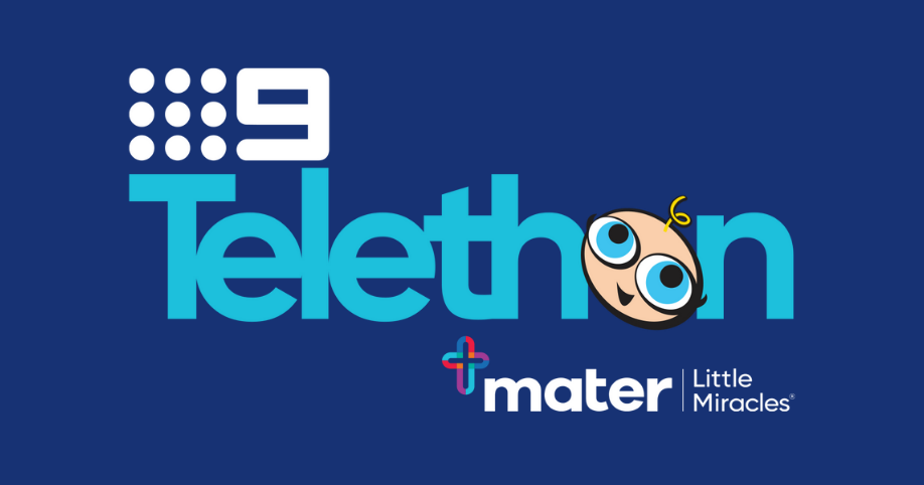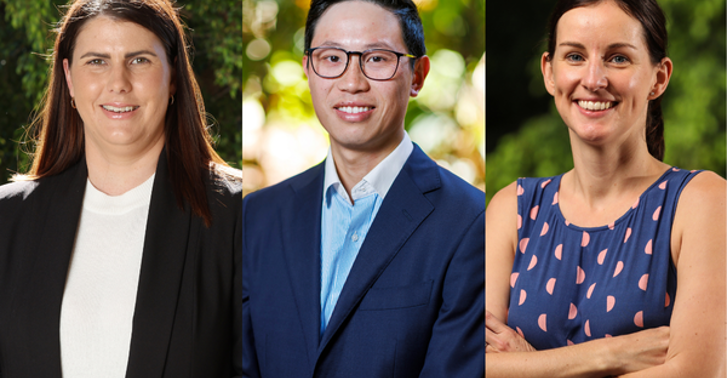
Groundbreaking research aimed at improving outcomes for mothers and babies has received a $2 million boost from the Federal Government.
The funding, donated to the Nine Telethon supporting Mater Little Miracles earlier this year, has created a grant scheme for 10 neonatal and maternal medical research projects.
The 2025 Nine Telethon Perinatal Research Grants will support projects that bridge the gap between initial scientific discovery and clinical application, ensuring that innovations in maternal and neonatal care reach patients faster and more effectively.
Mater Research Executive Director Professor Allison Pettit said the grants are a vital investment in the future of maternal and neonatal health.
“These projects are not only advancing our understanding of complex pregnancy and neonatal conditions, but they’re also delivering real-world solutions that will improve care and outcomes for families across Queensland and beyond,” Prof Pettit said.
“The Nine Telethon grants enable our medical researchers to translate their discoveries into practice, helping vulnerable mothers and babies when they need it most.”
Mater Foundation Chief Executive Andrew Thomas expressed his gratitude for the partnership with the Australian Government.
“These grants are a powerful example of what the Nine Telethon supporting Mater Little Miracles can achieve - investment in the future of health care,” Mr Thomas said.
This year’s funding from the Australian Government as a Presenting Partner of the Nine Telethon, will support ten impactful projects, each focused on addressing critical challenges in maternal and neonatal care—from improving survival rates in preterm infants to enhancing maternal vaccination uptake and reducing the risk of birth trauma.
Projects funded:
- Chair of Neonatology Professor Ju-Lee Oei is an international leader in the resuscitation of sick newborns, and in the care of mothers, babies and families affected by drugs of addiction and dependency. She was awarded a grant for research that will drive major advancements in neonatal research and clinical practice, enhancing Mater’s reputation as a world leader in mother and baby health.
- Professor Sailesh Kumar, who leads the Genesis Maternal Fetal Medicine Research Group Leader and is a Senior Specialist in Maternal Fetal Medicine and Obstetrics at Mater Mothers’ Hospital was awarded a grant for an observational study that will further understanding about accurately identifying babies who are at risk of stillbirth, neonatal death or severe pregnancy complications by looking at placental function and close fetal surveillance. The study will determine whether planned birth between 39 - 40 weeks is an acceptable and effective prevention approach for these adverse events.
Prof Kumar also received a second grant for the clinical translation project titled ‘The Mater Fetal Growth Clinic – A model to improve clinical outcomes and build collaborative research capacity in Southeast Queensland’. The research will evaluate the viability and benefit of expanding the Fetal Growth Clinic service at Mater that increases identification of small for gestational age (SGA) babies and subsequently provides a new model of care to these at-risk pregnancies. - Mater Health Neonatal Physiotherapist Associate Professor Judith Hough was awarded a grant for a medical research project that will prevent serious complication or death in infants with congenital diaphragmatic hernia (CDH)—a serious neonatal condition where the diaphragm fails to develop, resulting in the abdominal organs migrating into the chest and significantly reducing lung development. Dr Hough’s study will use an innovative tool, Electrical impedance Tomography that has never been used on infants with CDH to better understand how to optimise lung function and position.
- Senior Staff Specialist in Neonatology Associate Professor Luke Jardine was awarded a grant for a randomised controlled trial that will investigate the best size of peripheral intravenous catheter (PIVC) to use on neonates, and if applying tissue adhesive to the insertion site will decrease complication rates.
- Macrophage Biology Research Group Leader Professor David Hume was awarded a grant to investigate a preclinical evaluation of a treatment for immune deficiency in preterm infants that puts infants at high risk of infectious diseases. Prof Hume’s previous research has shown that macrophages, a type of immune cell, are crucial for postnatal development of the immune system and have demonstrated that macrophage colony-stimulating factor (known as CSF1) can promote development of the immune system and regulate liver function. The researchers will test the safety and efficacy of CSF1 in two preclinical models as a treatment for complications of prematurity.
- Clinical Midwifery Consultant in Ambulatory Services Paige Bennet was awarded a grant to understand the uptake of maternal vaccinations such as influenza, pertussis and respiratory syncytial virus (RSV) for vulnerable pregnant women attending antenatal clinic. By focusing on enhancing accessibility, creating more opportunities for vaccination, and providing targeted education, the project aims to empower both healthcare professionals and pregnant women to prioritise vaccination.
- Neurodevelopmental Research Group Leader Associate Professor Paul Dawson was awarded a grant towards a clinical trial to progress a promising treatment that aims to reduce disability among preterm infants. The clinical trial, ASCent, builds on A/Prof Dawson’s previous work, the SuPreme study, which found that lower blood sulfate levels at one week of age are linked to a higher risk of cerebral palsy. This funding will enable key research activities essential for designing the trial.
- Mater Mothers’ Hospital Director of Obstetrics and Gynaecology Associate Professor Sarah Janssens was awarded a research grant for the clinical translation project titled ‘Improving Clinical Outcomes Through Enhanced Teamwork: Translating Simulation-Based Training into Maternity Emergency Practice’. The research will deliver full implementation of a Maternity Team Approach in clinical practice – promoting clinician teamwork to reduce the physical and psychological impacts of birth trauma.
- Mater Mothers’ Hospital Neonatal Critical Care Unit Nurse Mackenzie Boundy was awarded a grant for her research project titled ‘From Bedside to Breakthrough: A Novel Approach to Managing Neonatal Stomas’. Her project will investigate the use of a Stomal Sponge™ Mini, a soft, absorbent device placed discreetly inside the stoma bag to capture output will be evaluated to determine whether it can prevent associated painful and difficult to manage complications, simplifying stoma management and improving care for infants and their families.



